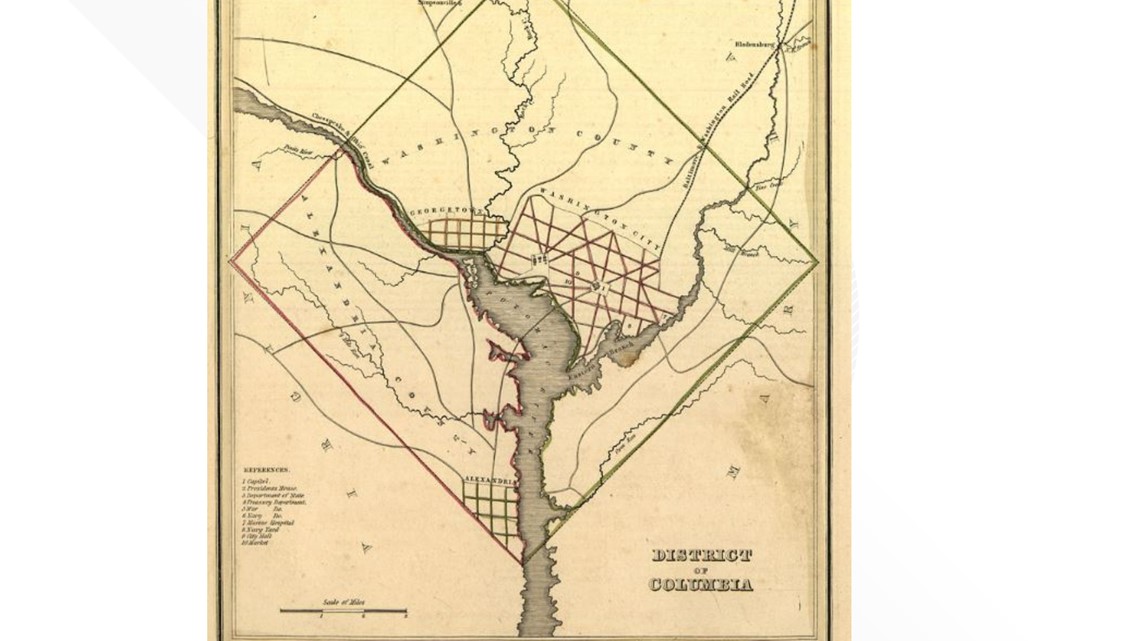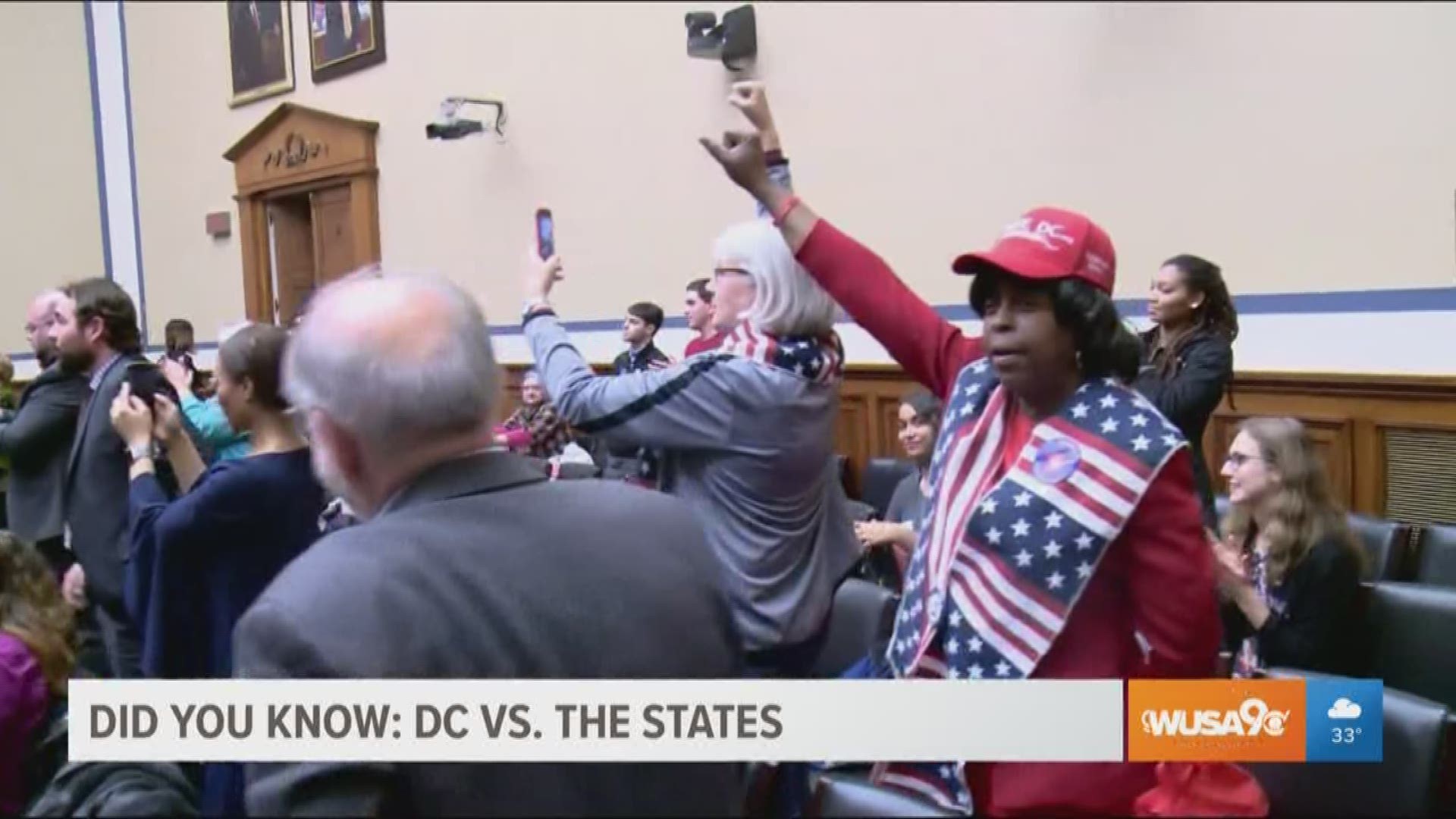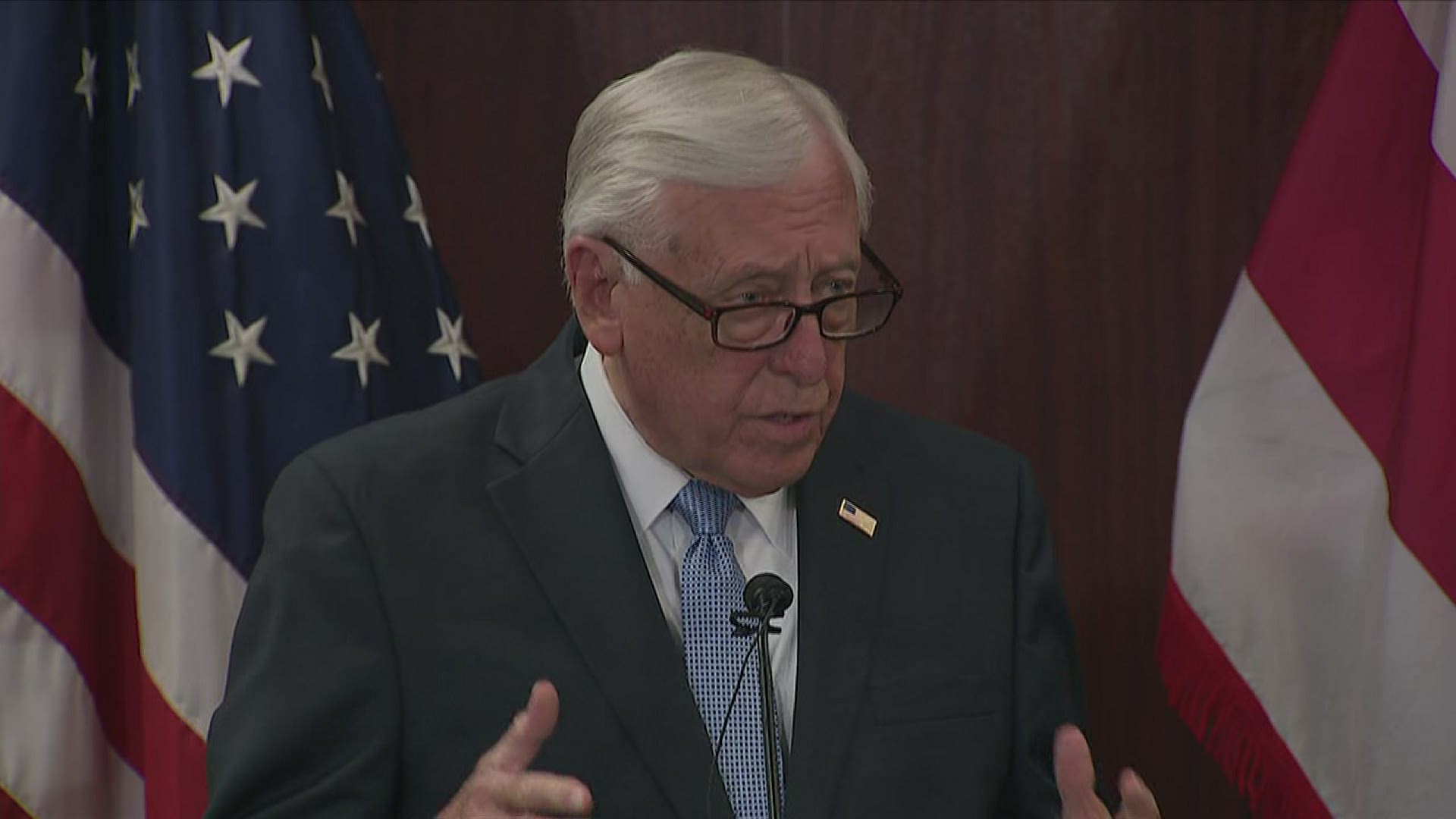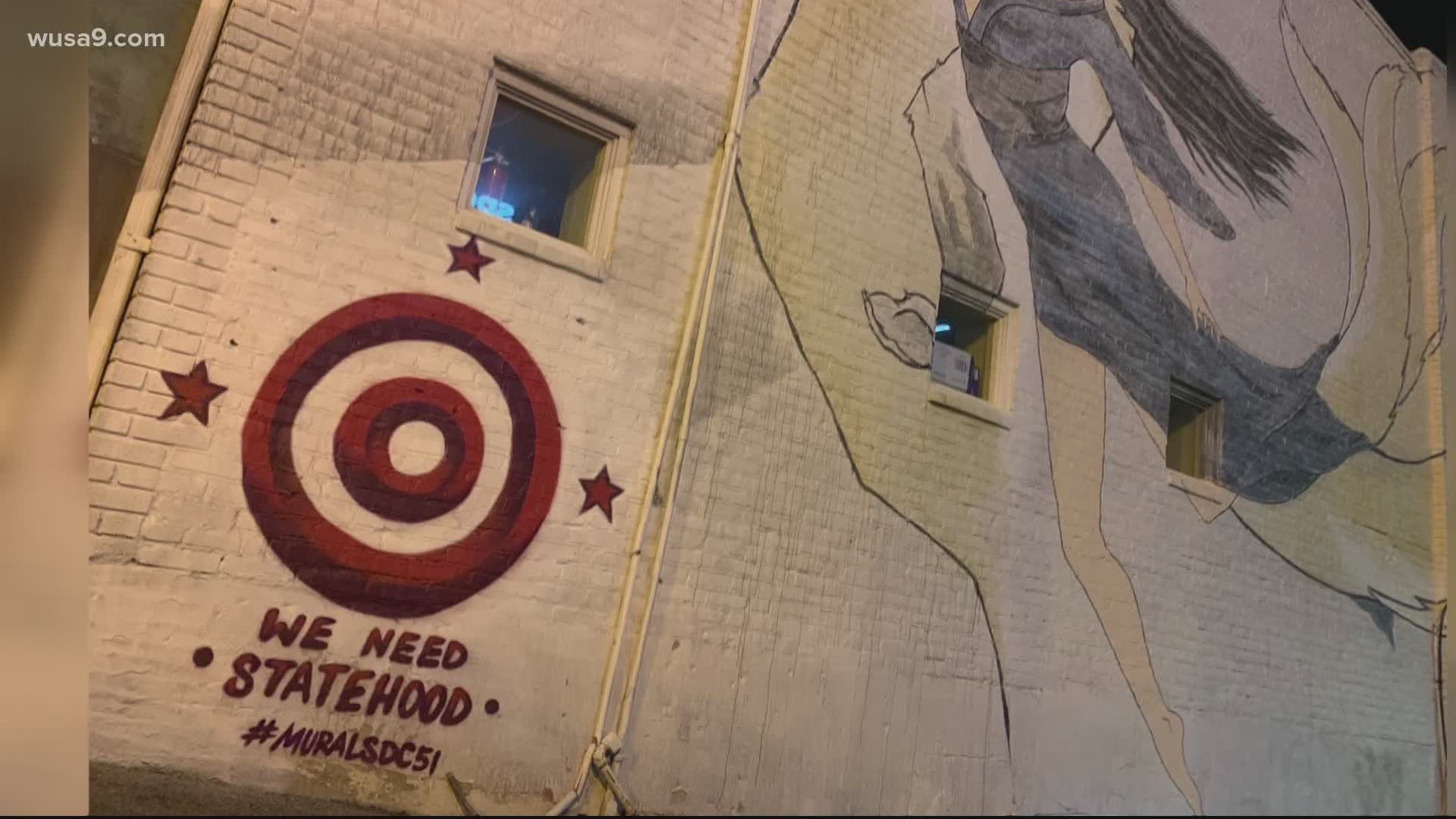WASHINGTON — Friday marked a historic day in Washington, with legislators voting for the first time since 1993 on a bill proposing D.C. as the 51st state, and the House of Representatives subsequently passing the bill.
It's the first time that either house of Congress has passed legislation that would allow D.C. to have full statehood and congressional representation. The bill would still need to be passed by the Republican-backed Senate -- where a filibuster and eventual kill are expected -- before actually allowing D.C. to become a state.
Critics of D.C. statehood argue that the framers of the Constitution never wanted the nation’s capital to be its own state. They say creating a new state would call for a constitutional amendment and the new state -- with a proposed name of Washington, Douglass Commonwealth -- would have a disproportionate amount of influence over what the federal government can and can't do.
If DC does become a state, doesn't that go against the whole federal territory that the Constitution set up? Well, not exactly.
Eleanor Holmes Norton's bill would shrink the federal government territory to a two-mile radius (dubbed the "National Capital Service Area" ) that would include the White House, Capitol, Supreme Court and other federal law-making buildings that would still stay under congressional control. D.C. has roughly 700,000 residents who currently pay federal taxes and who do not have equal voting representation, so statehood would help protect those residents.
Instead, some proponents argue that 'retroceding' D.C. into other state land makes more sense and reduces the fear of controlling the federal government.
D.C. becoming the 51st state would mean the District would have two more senators in the upper chamber; under retrocession, the number would stay as is.
To supporters, retroceding takes away the political bargaining power that D.C. statehood would have -- if voting representation and taxation is all that matters, what difference does it make if the land falls into another state?
So, what is 'retroceding', and how would that impact D.C. if statehood was granted?
Originally, D.C. consisted of five different areas:
- Washington County, the more eastern and northern parts of D.C. that are closer to Maryland
- City of Washington, the main core of the city with those federal buildings
- Alexandria County, the south and west part of D.C. closer to Virginia
- City of Alexandria, pretty much the same territory we know today
- Georgetown, area similar to the neighborhood today
The Organic Act of 1801 officially gave control of D.C. to Congress and organized the District into two counties: Washington County north and east of the Potomac and Alexandria County to the south and west; the existing cities of Alexandria and Georgetown were left alone.


Back in the 1830s, residents in Alexandria County -- then a major market in the slave trade-- grew frustrated with economic concerns that Congress would block slavery in the District. In 1846, they petitioned Congress who then voted to "retrocede" the Alexandria County and city of Alexandria back to the state of Virginia.
What was left was Washington County, Georgetown and the City of Washington, who combined together to form one area: the Washington, D.C we know today.
Hasn't this been brought up before?
Representatives in Congress have proposed retroceding parts of D.C. back to Maryland to help give more voting representation to D.C. residents before.
House bills H.R. 810 & H.R. 381 proposed the idea of D.C. retroceding back into Maryland for voting rights purposes back in 2001 and 2003 and failed. And in 2004, the District of Columbia Voting Rights Restoration Act proposed considering D.C. residents as Maryland residents strictly for congressional representation purposes. It never came out of committee.
But do people living in Maryland want D.C. residents to be considered Marylanders?
According to a July 2019 Gallup poll, 64% of Americans didn't think D.C. should be a state. In 2016, a survey done by Public Policy Polling showed that Marylanders weren't exactly thrilled to have the District annexed to their land either, showing 44% opposing.
Regardless of retroceding, the debate for D.C. statehood is now just one chamber away from passing. While Senate Majority Leader Mitch McConnell has already stated he will not call the bill up for a vote, the momentum signals an invigorated push for autonomy from the federal government.



